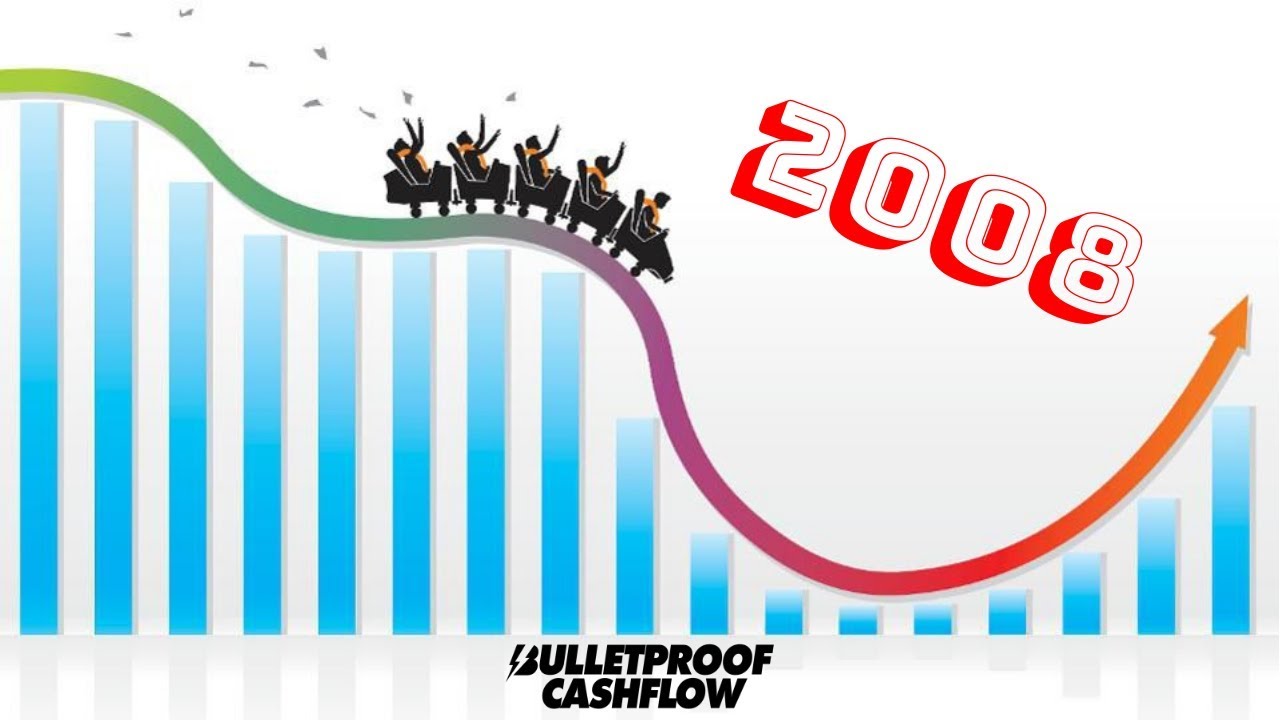Premium Only Content

What Makes Multifamily Recession-Resistant?
The general consensus among most investors and economists is that there is a recession coming. The question is when. The great thing is that there are ways to prepare for it.
Industry experts say that multifamily occupancy and returns will be fine in a recession. Today, we go into why the experts think this and I will give you three reasons why multifamily makes for a recession-resistant investment.
If you are new here, my name is Agostino and I’m a real estate entrepreneur, syndicator, and investor. I like to share stories, lessons, and advice from my journey in real estate, particularly, multifamily real estate, and I enjoy helping others to get into the business. I do that through the Bulletproof Cashflow social media channels and through coaching, both online and in person. If you haven’t subscribed, do that now and turn on notifications so that you don’t miss anything. Also, I’d love to know who you are and what you’re up to, so say hi on social.
If you’ve gone through an economic crash, you may already know that rising prices, a sharp rise in bankruptcy and high unemployment make people stockpile cash and causes others to panic - and for good reason. There is no predictability. For those that went through the last crash, many of those who lost their entire life’s savings still have not recovered to this day. You need a safer instrument to protect yourself. You need something that is much more predictable.
This means investing in the right asset classes. For instance, vacation homes were hit hard in the 2008 crash and in past recessions. This is because in tough times, an owner will make the payment on their primary residence before paying the mortgage on a second home. It may be possible to do Airbnb, but we have yet to see how that fares in a recession. Another example is small retail. If a small business, like an independent cafe, bookstore or retail shop has a hard time weathering an economic slowdown, you would have a vacancy on your hands. And depending on location, some of those commercial spaces stay vacant for a very long time. This translates into no cash flow.
Investing in cash-producing real estate - specifically multifamily - is where many store their wealth. This is not only for the returns and tax benefits but because of what happens in a recession. People lose their houses or lose their jobs. They need to rent until they get back on their feet.
Reason 1: People rent during a recession, or move to a lower class rental
When we are talking recession-resistant multifamily though, we are not talking Class A deals - those beautiful luxury places with the resort-style pool, clubhouse, fitness centers, and a doorman. If anything, Class A is getting overbuilt and the rents are high. Even today, there is so much competition that people in two-year-old Class A properties are moving to brand new Class A’s. In a downturn, these affluent residents may experience an income hit and move down to a Class B apartment unit.
This is what happened in the previous recession and it is bound to happen again. According to economists at RealPage, they have seen owners of Class A apartments cut their rents to pull renters from Class B properties. This is something to keep an eye out and is an indicator as more of these high-end units are built up.
Even with these weaknesses, during good economic times these Class A’s will find people to move into the units. These new developments are typically in upscale downtown markets, where there are plenty of jobs, local amenities, and nightlife. The major cities, like New York, Chicago, and Miami are attractive places for great talent - something employers need during any market cycle. Things will change in terms of income of the tenant profile when the slowdown hits. This needs to be considered. And this is what makes Class B & C properties recession-resistant.
Reason 2: People losing their houses will move to a rental
No matter what happens in the economy, people will always need a place to live. When there is an economic slowdown or recession, people tighten their belts. Those that are in Class A units move to a Class B. Those that are in a Class B move to a Class C. In the last recession, there was an explosion in foreclosures. People needed rentals because they either lost their homes or just walked away from them. The need for multifamily housing increased. This caused multifamily owners and landlords to keep their rents where they were, to keep vacancies low.
-
 1:24
1:24
The Antipodean:
4 years ago $0.18 earnedWhat makes us Human
320 -
 2:52
2:52
Dinesh D'Souza
4 years agoWhat Makes Christianity So Unique?
32.8K128 -
 11:35
11:35
liberty33
4 years agoWhat Makes Us Tick
97 -
 2:13
2:13
WEWS
4 years agoWhat makes Brookdale different than others
357 -
 13:27
13:27
SandysSkillz
4 years ago $0.07 earnedJust dance what makes you beautiful.
1982 -
 0:11
0:11
rogergrendell65
4 years ago $0.04 earnedWhat a difference a day makes!!!!
75 -
 3:19
3:19
SnuggleBug73
4 years ago $0.02 earnedWhat Makes You Beautiful
2201 -
 2:13
2:13
NowYouKnowEnglish
4 years agoWhat Makes Search Engine Optimization Essential?
85 -
 14:34
14:34
TFB's Retro Game Music Station
4 years ago $0.01 earnedWhat makes Super Metroid music awesome!
3271 -
 1:04
1:04
rogergrendell65
4 years agoWhat a difference two weeks makes!
20